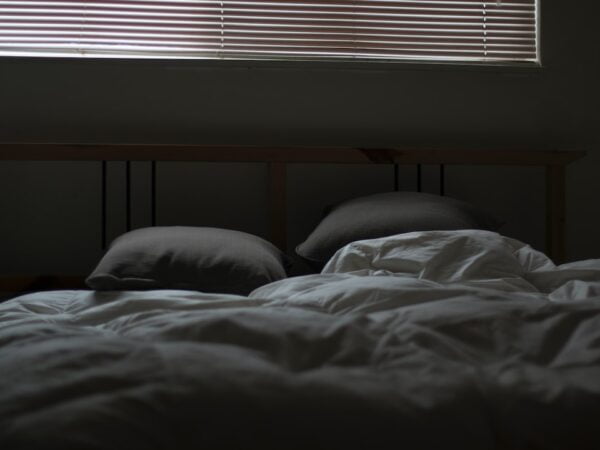
Natural remedies for insomnia and sleep difficulties
Insomnia is a common sleep disorder that affects millions of people worldwide. It is characterized by difficulty falling asleep, staying asleep, or both. Sleep difficulties can range from occasional episodes to chronic insomnia, which can have a significant impact on a person’s quality of life. There are several factors that can contribute to insomnia, including stress, anxiety, poor sleep habits, and certain medical conditions.
Sleep deprivation is another common issue that many people face. It occurs when an individual does not get enough sleep on a regular basis. This can be due to various reasons, such as work demands, lifestyle choices, or medical conditions. Both insomnia and sleep deprivation can have negative effects on physical and mental health, making it important to address these issues and find effective solutions.
Key Takeaways
- Insomnia and sleep difficulties can have a negative impact on your health and well-being.
- Lifestyle changes, such as establishing a regular sleep schedule and reducing screen time before bed, can improve sleep quality.
- A balanced diet and proper nutrition can also contribute to better sleep.
- Exercise can help regulate sleep patterns and improve overall sleep quality.
- Relaxation techniques, herbal remedies, essential oils, acupuncture, and napping can all be effective natural solutions for insomnia relief.
The Importance of Sleep for Your Health and Well-being
Sleep plays a crucial role in maintaining overall health and well-being. It is during sleep that the body repairs and rejuvenates itself. Lack of sleep can have serious consequences on physical health, including increased risk of obesity, diabetes, cardiovascular disease, and weakened immune system. It can also affect mental health, leading to mood disorders, anxiety, depression, and impaired cognitive function.
Sleep deprivation can also impact daily functioning and productivity. It can lead to decreased concentration, memory problems, and difficulty making decisions. Additionally, it can increase the risk of accidents and injuries due to impaired alertness and reaction time. Therefore, prioritizing sleep is essential for maintaining optimal health and well-being.
Natural Remedies for Insomnia: Lifestyle Changes
1. Establishing a regular sleep schedule: Going to bed and waking up at the same time every day helps regulate the body’s internal clock and promotes better sleep quality. It is important to maintain this schedule even on weekends or days off.
2. Creating a sleep-conducive environment: Make sure your bedroom is quiet, dark, and cool. Use blackout curtains or an eye mask to block out any light. Invest in a comfortable mattress and pillows that support your body. Remove any distractions, such as electronics or clutter, from the bedroom.
3. Limiting caffeine and alcohol intake: Caffeine is a stimulant that can interfere with sleep. It is best to avoid consuming caffeine in the afternoon and evening. Alcohol may initially make you feel drowsy, but it can disrupt sleep later in the night. It is advisable to limit alcohol intake and avoid drinking close to bedtime.
4. Managing stress and anxiety: Stress and anxiety can make it difficult to fall asleep or stay asleep. Engaging in relaxation techniques, such as deep breathing exercises or meditation, can help calm the mind and promote better sleep. It is also important to establish a bedtime routine that helps you unwind and relax before sleep.
The Role of Diet and Nutrition in Improving Sleep Quality
1. Foods that promote sleep: Certain foods contain nutrients that can help promote better sleep. These include foods rich in tryptophan, such as turkey, chicken, nuts, seeds, and dairy products. Tryptophan is an amino acid that helps produce serotonin, a neurotransmitter that promotes relaxation and sleep.
2. Foods to avoid before bedtime: Some foods can interfere with sleep quality if consumed too close to bedtime. These include foods high in sugar or refined carbohydrates, spicy foods, and heavy meals that can cause indigestion or heartburn. It is best to have a light snack if needed, at least a few hours before bed.
3. The importance of hydration: Staying hydrated throughout the day can also contribute to better sleep quality. Dehydration can lead to discomfort and restless sleep. It is recommended to drink enough water during the day but limit fluid intake close to bedtime to avoid frequent trips to the bathroom during the night.
The Benefits of Exercise for Better Sleep
Regular exercise has been shown to improve sleep quality and duration. It helps reduce symptoms of insomnia and promotes a deeper, more restorative sleep. Exercise also helps regulate the body’s internal clock and increases the production of endorphins, which are natural mood boosters.
The best types of exercise for improving sleep quality include aerobic exercises, such as walking, jogging, cycling, or swimming. These activities increase heart rate and body temperature, promoting better sleep. It is important to find a time that works best for you to exercise. Some people find that exercising in the morning or early afternoon energizes them for the day, while others prefer to exercise in the evening to help them wind down before bed.
The Power of Relaxation Techniques for Insomnia Relief

Relaxation techniques can be effective in reducing stress and anxiety, which are common causes of insomnia. Deep breathing exercises involve taking slow, deep breaths and focusing on your breath to calm the mind and relax the body. Progressive muscle relaxation involves tensing and then releasing each muscle group in the body to promote relaxation.
Guided imagery and visualization techniques involve creating mental images that promote relaxation and sleep. This can be done by imagining yourself in a peaceful place or engaging in a calming activity. These techniques can be practiced before bed or during times of stress throughout the day to help promote better sleep.
Herbal Remedies for Insomnia: A Natural Approach
Herbal remedies have been used for centuries to promote better sleep. Chamomile tea is a popular herbal remedy known for its calming properties. It can help reduce anxiety and promote relaxation before bed. Valerian root is another herb that has been used for insomnia relief. It can help improve sleep quality and reduce the time it takes to fall asleep. Passionflower is also known for its sedative properties and can be used as a natural remedy for insomnia.
It is important to note that herbal remedies may not work for everyone, and it is best to consult with a healthcare professional before using them, especially if you are taking any medications or have any underlying health conditions.
Essential Oils for Sleep: Aromatherapy Solutions
Aromatherapy involves using essential oils to promote relaxation and better sleep. Lavender oil is one of the most popular essential oils for sleep. It has calming properties and can help reduce anxiety and promote better sleep quality. Bergamot oil is another essential oil that can help reduce stress and promote relaxation. Ylang-ylang oil is known for its sedative properties and can be used to promote better sleep.
Essential oils can be used in various ways, such as diffusing them in a room, adding a few drops to a warm bath, or applying them topically (diluted with a carrier oil) to pulse points or the soles of the feet. It is important to use high-quality essential oils and follow proper dilution guidelines.
Acupuncture and Acupressure for Insomnia: Ancient Healing Methods
Acupuncture and acupressure are ancient healing practices that involve stimulating specific points on the body to promote balance and healing. These practices have been used for centuries to treat various health conditions, including insomnia.
Acupuncture involves inserting thin needles into specific points on the body, while acupressure involves applying pressure to these points using fingers or other tools. Both practices are believed to help regulate the flow of energy in the body and promote relaxation.
Research has shown that acupuncture and acupressure can be effective in improving sleep quality and reducing insomnia symptoms. It is important to find a qualified practitioner who is trained in these techniques to ensure safety and effectiveness.
The Benefits of Napping for Improved Health and Sleep Quality
Napping can have several benefits for physical and mental health. It can help reduce fatigue, increase alertness, and improve mood. Napping has been shown to enhance cognitive function, memory, and creativity. It can also help regulate emotions and reduce stress.
To nap effectively, it is important to keep naps short (around 20-30 minutes) to avoid entering deep sleep and feeling groggy upon waking. It is best to nap earlier in the day to avoid interfering with nighttime sleep. Creating a comfortable and quiet environment for napping can also enhance its benefits.
In conclusion, insomnia and sleep difficulties can have a significant impact on overall health and well-being. It is important to address these issues and find effective solutions. Natural remedies for insomnia include lifestyle changes, such as establishing a regular sleep schedule and creating a sleep-conducive environment. Diet and nutrition play a role in improving sleep quality, with certain foods promoting sleep and others to avoid before bedtime. Exercise has been shown to improve sleep quality, and relaxation techniques can help reduce stress and anxiety. Herbal remedies, essential oils, acupuncture, acupressure, and napping are additional natural approaches that can promote better sleep. It is important to prioritize sleep and seek professional help if necessary to ensure optimal health and well-being.
If you’re struggling with insomnia and sleep difficulties, you may want to explore natural remedies to help improve your sleep quality. One effective solution is using magnetic therapy, which has been found to have positive effects on sleep patterns. In a related article by Wave Magnets, they discuss the benefits of magnetic therapy for insomnia and provide insights into how it works. To learn more about this fascinating approach, check out their article on wavemagnets.com.
FAQs
What is insomnia?
Insomnia is a sleep disorder characterized by difficulty falling asleep, staying asleep, or both. It can lead to daytime fatigue, irritability, and difficulty concentrating.
What are the causes of insomnia?
Insomnia can be caused by a variety of factors, including stress, anxiety, depression, medical conditions, medications, caffeine, alcohol, and poor sleep habits.
What are natural remedies for insomnia?
Natural remedies for insomnia include establishing a regular sleep schedule, practicing relaxation techniques such as meditation or yoga, avoiding caffeine and alcohol, exercising regularly, and using herbal remedies such as valerian root or chamomile tea.
What is valerian root?
Valerian root is an herbal remedy that has been used for centuries to treat insomnia and anxiety. It is believed to work by increasing levels of a neurotransmitter called GABA, which helps to calm the nervous system and promote relaxation.
What is chamomile tea?
Chamomile tea is an herbal tea made from the dried flowers of the chamomile plant. It is often used as a natural remedy for insomnia and anxiety, as it is believed to have a calming effect on the body.
Are there any risks associated with natural remedies for insomnia?
While natural remedies for insomnia are generally considered safe, some may interact with medications or have side effects. It is important to talk to a healthcare provider before using any natural remedies, especially if you are pregnant, breastfeeding, or taking medications.


















